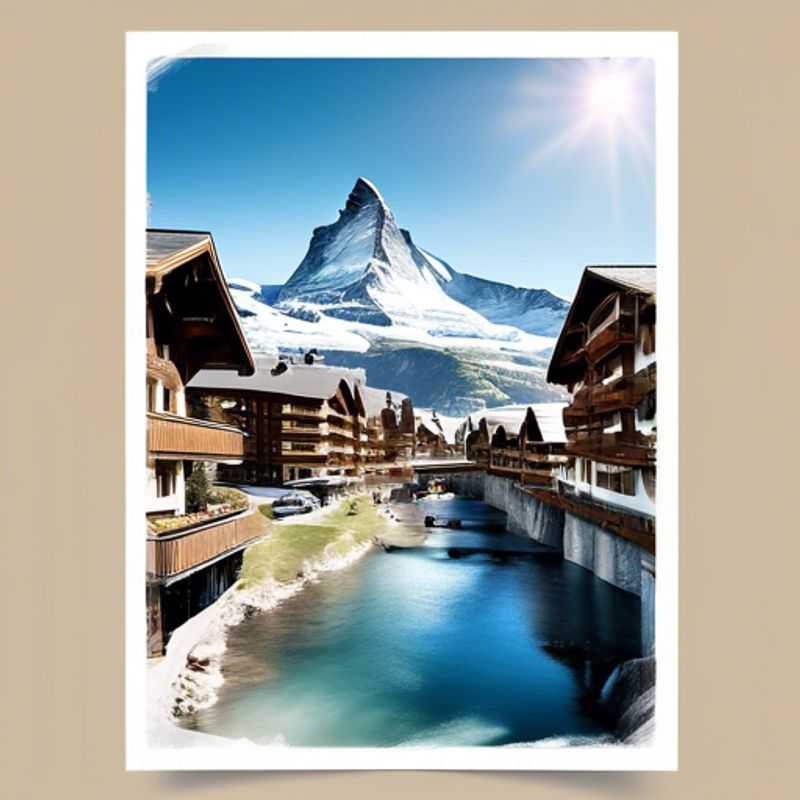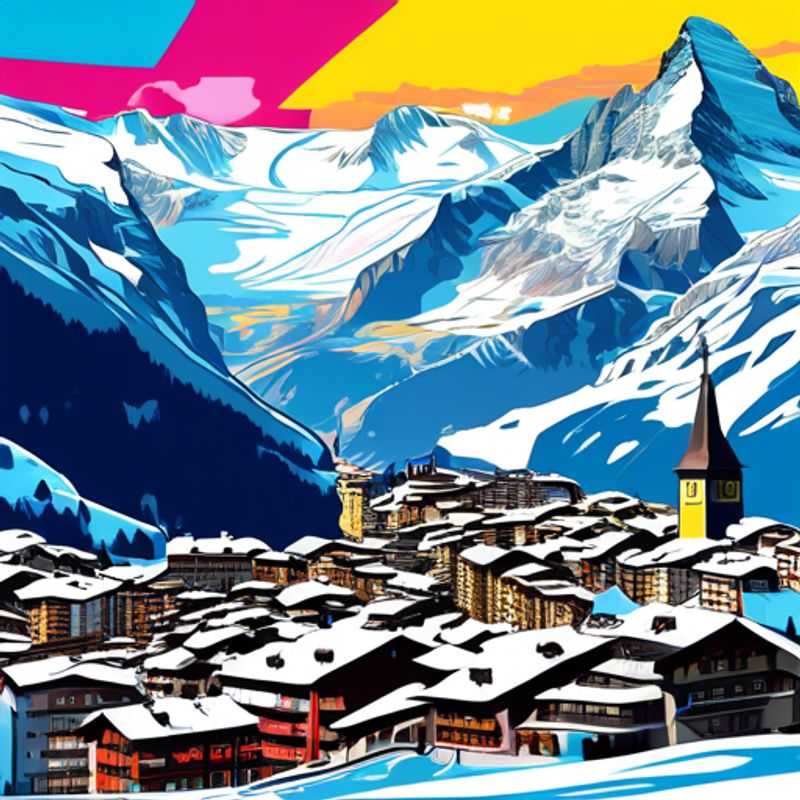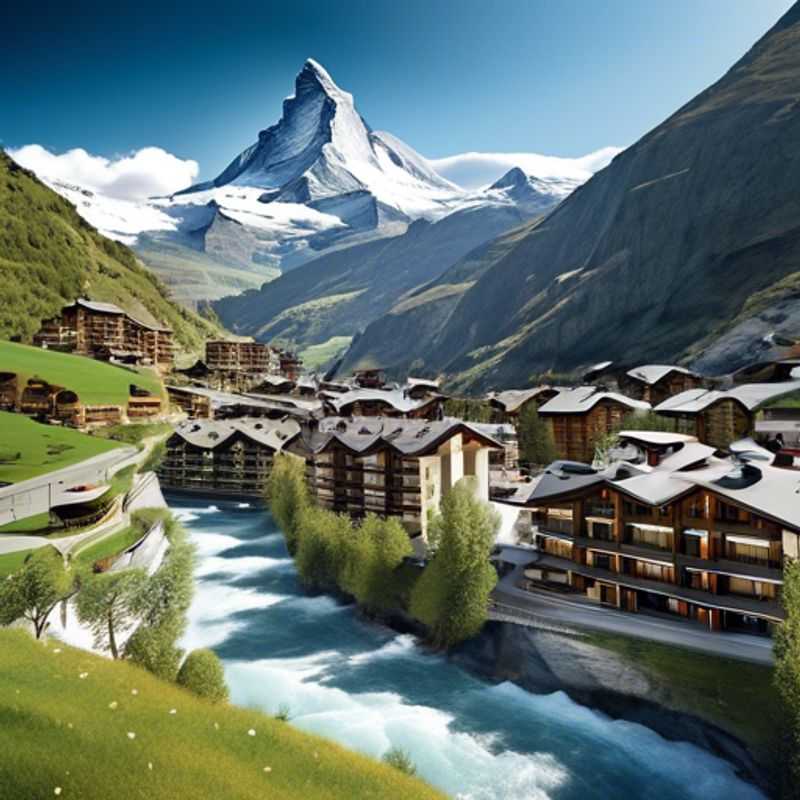Best Time for Skiing in Zermatt: Choosing the Perfect Month for Your Swiss Adventure

Your Ultimate Guide to Visiting Zermatt in 2026
Planning a trip to Zermatt in 2026 promises an unforgettable alpine adventure. This guide highlights essential tips for maximizing your visit to this iconic Swiss village, renowned for its breathtaking Matterhorn views and world-class skiing. When considering your travel dates, remember that peak ski season typically runs from December to April, offering the best snow conditions. For those seeking hiking and a more tranquil experience, summer months, from June to September, provide vibrant green landscapes and accessible trails.
When booking accommodation, consider staying within walking distance of the Gornergrat Bahn or Sunnegga funicular to easily access ski slopes and hiking routes. Zermatt is a car-free village, so your primary modes of transport will be the train, electric taxis, and your own two feet. Book train tickets to Zermatt in advance, especially if traveling during peak times, to secure your preferred departure and arrival. For dining, explore the diverse culinary scene, from cozy mountain huts serving traditional fondue to Michelin-starred restaurants. Don't miss trying local specialties like raclette and rösti.
Regarding activities, Zermatt offers more than just skiing. In winter, consider snowshoeing, winter hiking, or even a thrilling helicopter tour for unparalleled Matterhorn vistas. During summer, hiking and mountain biking are incredibly popular, with trails catering to all fitness levels. The Gornergrat railway provides stunning panoramic views without strenuous effort, making it a must-do for everyone. Remember to pack layers of clothing as mountain weather can change rapidly, and always check the weather forecast before heading out for any outdoor activity. Finally, purchasing a Zermatt Travel Pass or a Swiss Travel Pass can offer significant savings on transport and attractions, so research these options to suit your itinerary.
Best Time to Visit Zermatt: Finding the Perfect Month for Your Swiss Adventure
So, you're dreaming of Zermatt, the iconic Swiss village nestled at the foot of the majestic Matterhorn?

You may also like
Zermatt in Any Season: A Beginner's Guide to Choosing the Best Month
Unlocking Zermatt: Your Guide to Easy & Affordable Travel
Zermatt for First-Timers: When to Go & How to Save
Conquering Zermatt on a Budget: Best Time to Visit & Insider Tips
Best Time to Visit Zermatt: Practical Advice for Easy & Accessible Travel
Planning Your Zermatt Trip: Accessibility, Affordability, and the Perfect Month
Zermatt's Hidden Gems: Finding Authentic Experiences on a Budget
Your Accessible Zermatt Adventure: Choosing the Right Time of Year
Effortless Exploration of Zermatt: A Budget-Friendly Guide for Beginners
Navigating Zermatt with Ease: The Ultimate Guide for First-Time Visitors
Hello fellow adventurers! Planning a solo ski trip to Zermatt, Switzerland? Fantastic choice! Zermatt is renowned for its beginner-friendly slopes and stunning scenery, making it perfect for a staycation-style escape. Let’s explore how you can make the most of your trip efficiently and economically.
Weather: Expect crisp, cold air during ski season (typically December to April). Be prepared for snow, of course! Pack layers, waterproof outerwear, and comfortable ski boots. The sun can be surprisingly strong at altitude, so don’t forget your sunscreen and sunglasses.
Getting There & Around: The easiest way to reach Zermatt is by train. The scenic journey from Zurich or Geneva takes around 3-4 hours and is a worthwhile experience in itself. Once in Zermatt, you’ll likely need to rely on the excellent local bus system or taxis. Train tickets from Zurich can range from CHF 80-150 depending on the class and time of booking. Taxis are convenient but pricey; plan your transport in advance to save money.
Skiing for Beginners: Zermatt offers numerous gentle slopes ideal for learners. Sunnegga-Rothorn area is a great place to start. Consider taking a few lessons; group lessons are usually more affordable than private instruction. Expect to pay around CHF 100-150 for a half-day group lesson. A lift pass is required for accessing the slopes; the price varies depending on the duration. A 1-day lift pass costs approximately CHF 70-80.
Accommodation: Zermatt offers various options from budget-friendly hostels to luxurious hotels. Look for deals online and consider booking in advance, especially during peak season. Budget around CHF 80-200 per night for a decent hotel room, depending on the season and your preference.
Food & Drink: Embrace the Swiss culinary traditions! Indulge in fondue, raclette, and rösti (potato pancakes). Many restaurants offer affordable lunch menus. Expect to spend CHF 20-40 per meal, but costs can increase in high-end establishments. Local markets are a great way to save money, especially for snacks and drinks. Try the local cheese and wine; they're a delicious way to experience the local flavors.
Culture & Traditions: Zermatt boasts a unique car-free environment and charming chalet-style architecture, which is really special. The local people, mostly German-speaking Swiss, are friendly and welcoming. The atmosphere is relaxed and cheerful, particularly amongst the skiers and snowboarders. While the music tends to be subtle during the daytime, the après-ski scene in the evenings can be lively and filled with local folk music.
Avoiding Tourist Traps: Take the time to explore beyond the main tourist areas to discover authentic Zermatt. Wander through the charming side streets, and discover local artisan shops and hidden gems. This also helps keep costs down.
Sample Itinerary (3 days/2 nights):
Day 1: Arrive in Zermatt, check into your hotel, explore the village, enjoy dinner.
Day 2: Take a ski lesson, enjoy the Sunnegga-Rothorn slopes, indulge in a fondue dinner.
Day 3: Explore more of the mountain, take a scenic hike or enjoy some souvenir shopping, depart from Zermatt.
Estimated Total Cost (3 days/2 nights):
Train: CHF 150
Accommodation (2 nights): CHF 160
Ski Lesson: CHF 100
Lift Pass: CHF 80
Food & Drink: CHF 200
Total: Approximately CHF 700 (excluding souvenirs and unexpected expenses). This cost can vary greatly depending on the choices you make.
Remember, this is just a guideline. Tailor your trip to your budget and preferences. Enjoy your solo ski adventure in Zermatt!

Zermatt Travel Essentials: Your Guide to a Perfect Visit
Planning a trip to Zermatt, the charming Swiss village nestled at the foot of the iconic Matterhorn, requires a bit of preparation. This guide covers the essential travel basics to ensure a smooth and enjoyable visit. Firstly, consider the best time to visit, as Zermatt offers distinct experiences in both summer and winter. Summer is ideal for hiking and enjoying lush green landscapes, while winter is a paradise for skiers and snowboarders. Getting to Zermatt is part of the adventure, as it's a car-free village. You'll typically arrive by train to Täsch and then take a shuttle train for the final leg to Zermatt. This eco-friendly approach contributes to the village's serene atmosphere. Accommodation options range from cozy chalets to luxurious hotels, so book your lodging in advance, especially during peak seasons. When it comes to packing, think layers. The weather in the Alps can change rapidly, so bring clothing suitable for varying temperatures, including waterproof and windproof outer layers. Don't forget comfortable walking shoes for exploring the village and the numerous hiking trails. For those planning to hit the slopes, ensure you have appropriate ski gear or factor in rental costs. Currency in Switzerland is the Swiss Franc (CHF), and it's wise to have some cash on hand, though credit cards are widely accepted. Finally, familiarize yourself with the local transport options within Zermatt, such as electric taxis and buses, to navigate the village with ease. Enjoy the breathtaking scenery and the unparalleled charm of Zermatt!